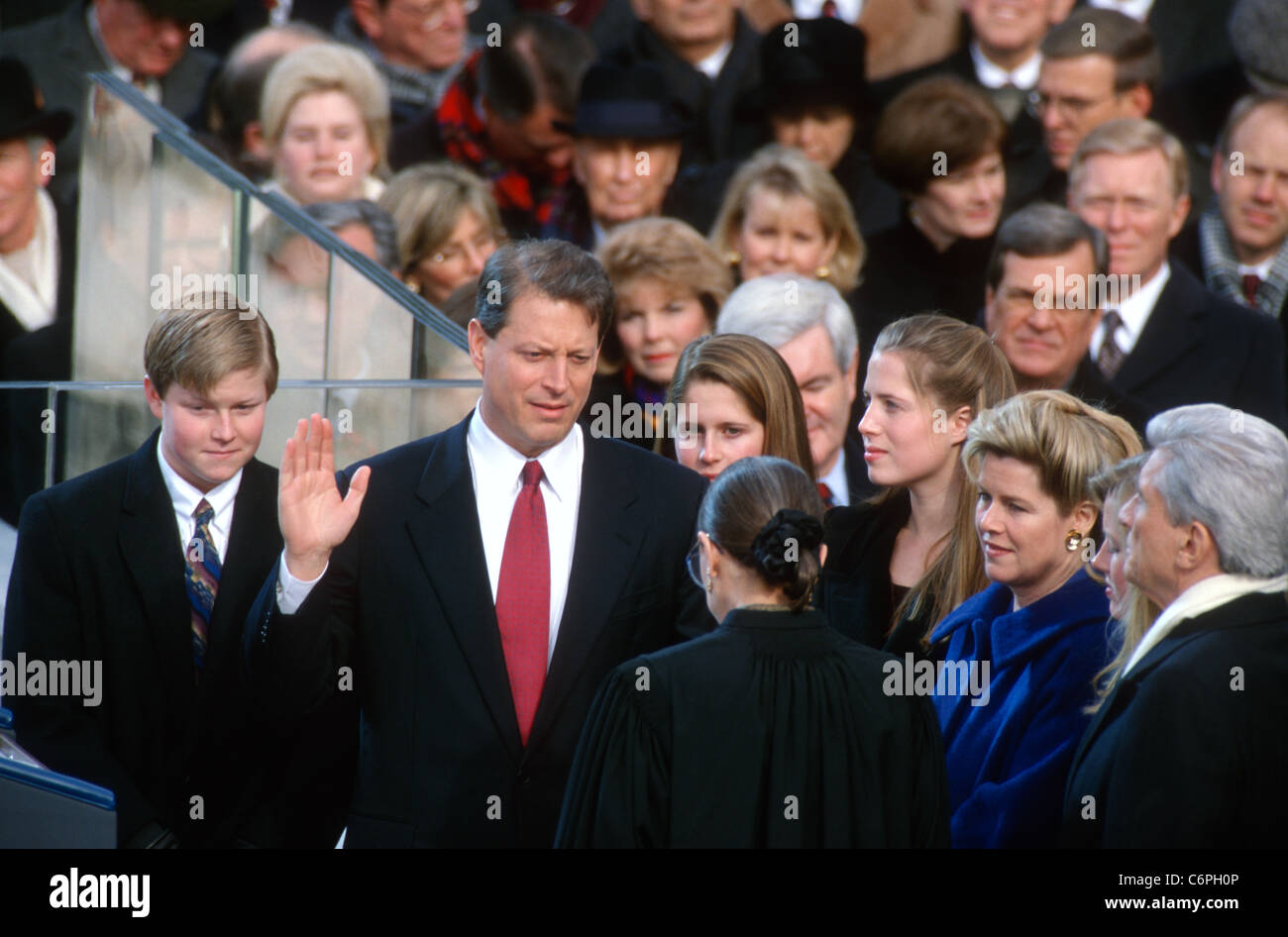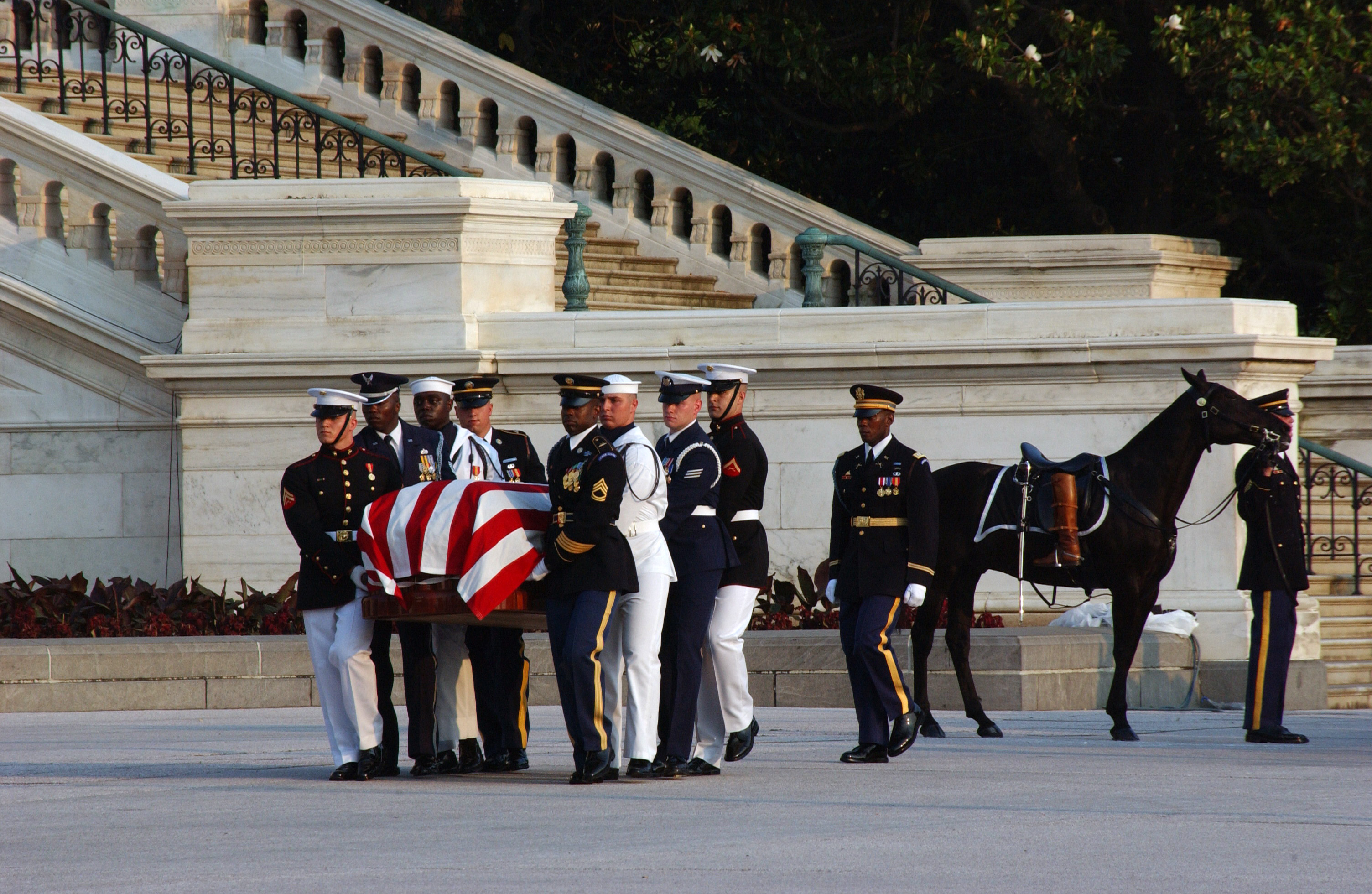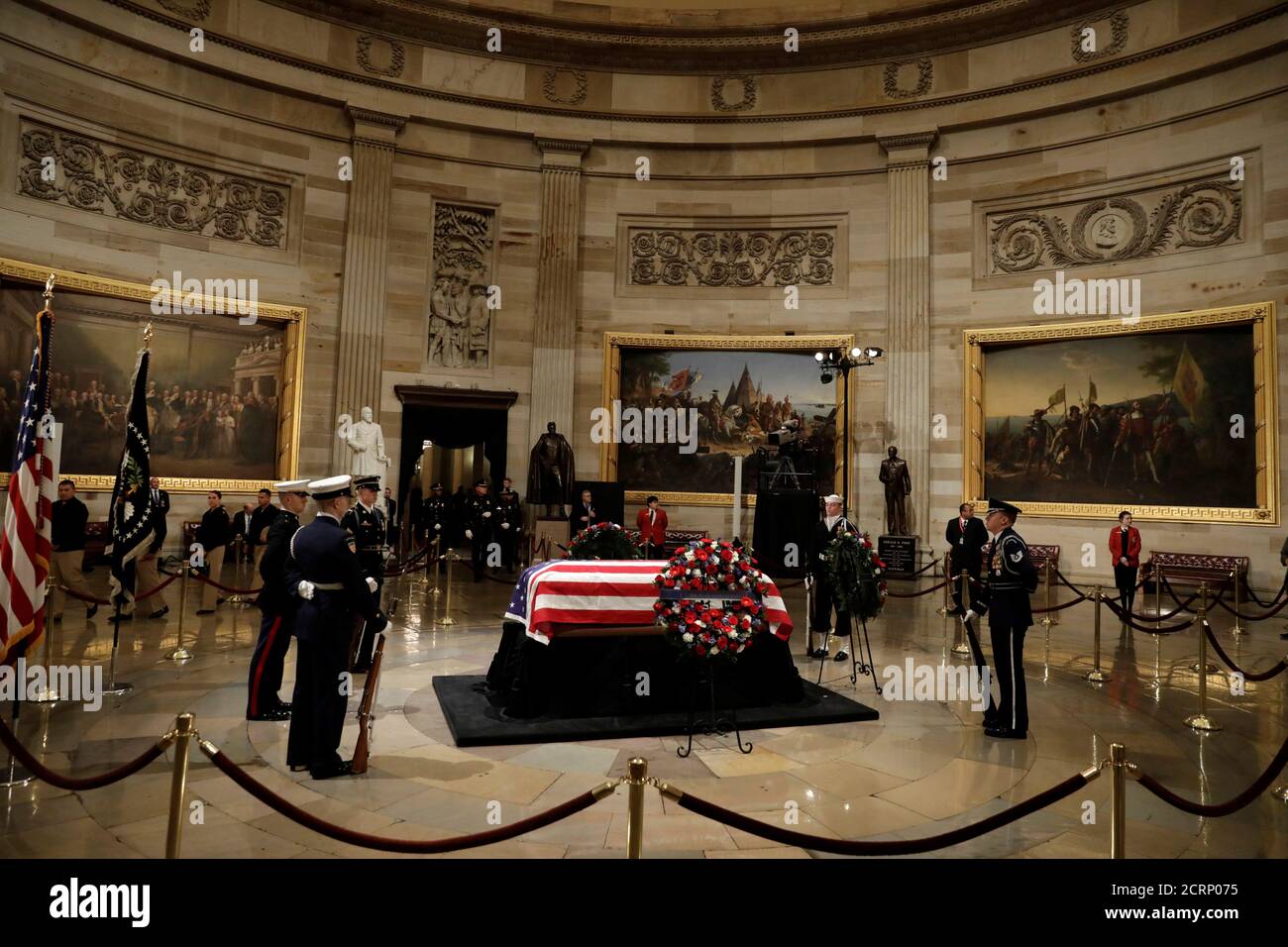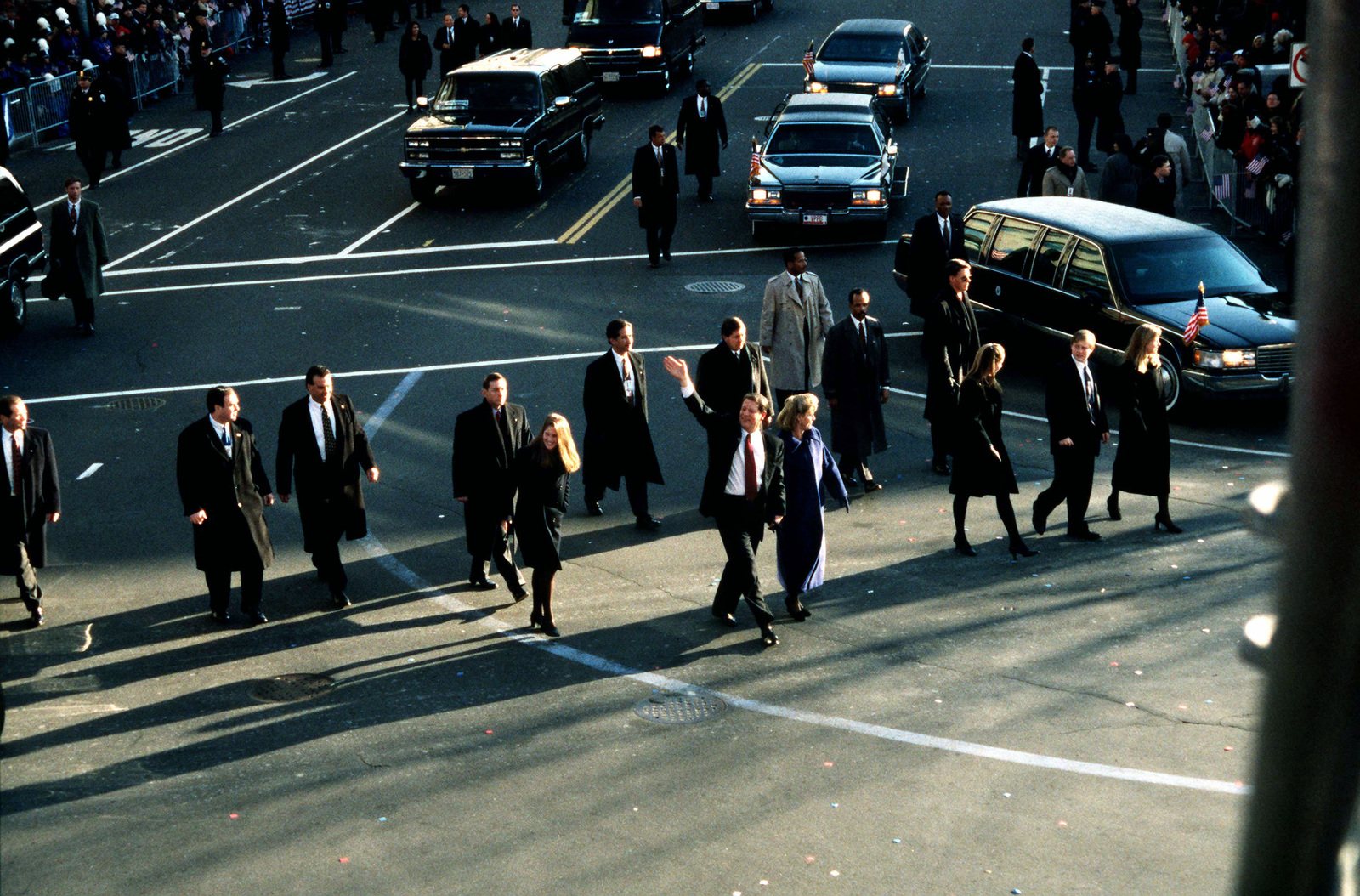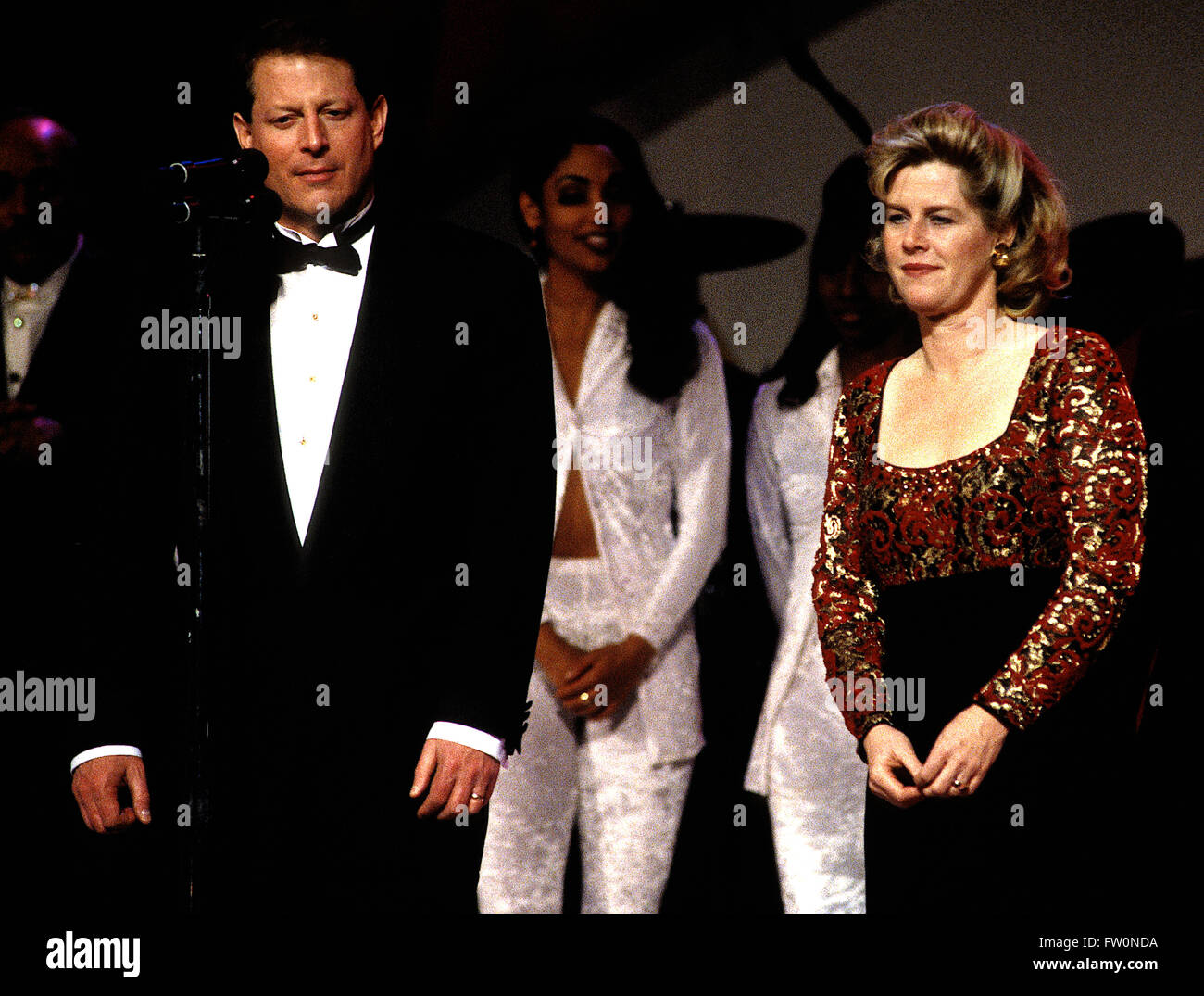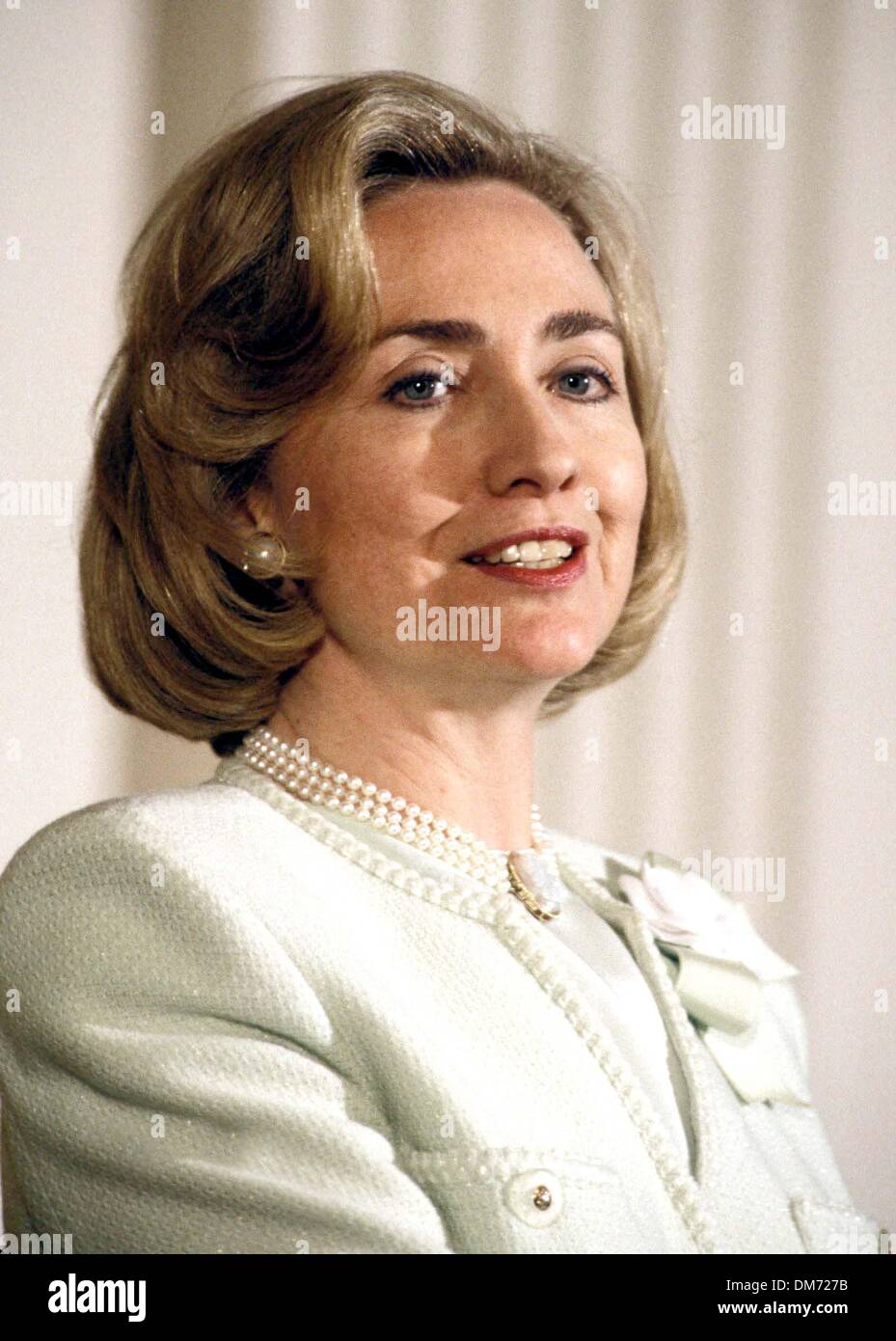Funeral arrangements for President Clinton announced....
Sergeant Foley
Well-known member
FUNERAL ARRANGEMENTS ANNOUNCED FOR PRESIDENT CLINTON
Thursday, December 5, 1996
Private Viewing
3:00 PM to 8:00 PM
East Room, White House
Washington, DC
Friday, December 6, 1996-Monday, December 9, 1996
Lying in Repose
US Capitol Rotunda
Washington, DC
Monday, December 9, 1996
11:00 AM EST
State Funeral
Washington National Cathedral
Washington, DC
Departure Honors Ceremony
2:00 PM EST
Joint Base Andrews Air Force Base
*21 Cannon Salute will be fired by the Presidential Salute Battery Unit
*Air Mission 43 will take off at 2:36 PM EST
Arrival Honors Ceremony
4:36 PM CST
Little Rock National Airport
Little Rock, Arkansas
*21 Cannon Salute by the Artillery Regiment of the Arkansas Army National Guard
*"Hail to the Chief" will be performed by the University of Arkansas-Pine Bluff Marching Band
Lying in Repose
Arkansas State Capitol Rotunda
Little Rock, Arkansas
Tuesday, December 10, 1996
11:00 AM CST
Pulaski Heights United Methodist Church
Little Rock, Arkansas
Final Resting Place:
Rose Hill Cemetery
Hope, Arkansas
*21 Cannon Salute by the United States Marine Corps Field Regiment
*Flyover from the Arkansas Air National Guard
*White House Press Secretary Mike McCurry confirmed that once the William Jefferson Clinton Presidential Center in Little Rock is completed in several years, the late President Clinton will be re-interred there.
Thursday, December 5, 1996
Private Viewing
3:00 PM to 8:00 PM
East Room, White House
Washington, DC
Friday, December 6, 1996-Monday, December 9, 1996
Lying in Repose
US Capitol Rotunda
Washington, DC
Monday, December 9, 1996
11:00 AM EST
State Funeral
Washington National Cathedral
Washington, DC
Departure Honors Ceremony
2:00 PM EST
Joint Base Andrews Air Force Base
*21 Cannon Salute will be fired by the Presidential Salute Battery Unit
*Air Mission 43 will take off at 2:36 PM EST
Arrival Honors Ceremony
4:36 PM CST
Little Rock National Airport
Little Rock, Arkansas
*21 Cannon Salute by the Artillery Regiment of the Arkansas Army National Guard
*"Hail to the Chief" will be performed by the University of Arkansas-Pine Bluff Marching Band
Lying in Repose
Arkansas State Capitol Rotunda
Little Rock, Arkansas
Tuesday, December 10, 1996
11:00 AM CST
Pulaski Heights United Methodist Church
Little Rock, Arkansas
Final Resting Place:
Rose Hill Cemetery
Hope, Arkansas
*21 Cannon Salute by the United States Marine Corps Field Regiment
*Flyover from the Arkansas Air National Guard
*White House Press Secretary Mike McCurry confirmed that once the William Jefferson Clinton Presidential Center in Little Rock is completed in several years, the late President Clinton will be re-interred there.
Last edited:




